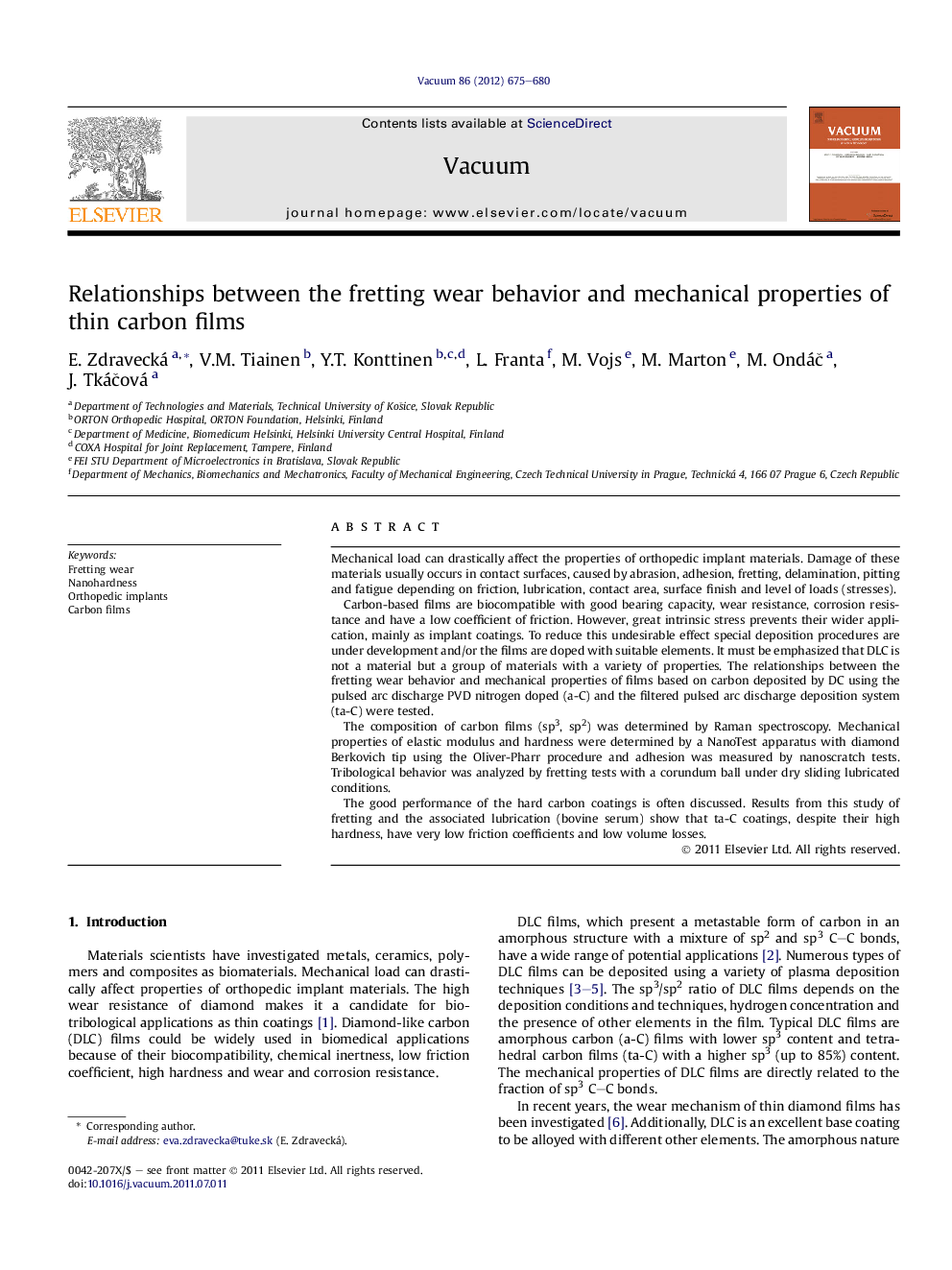| Article ID | Journal | Published Year | Pages | File Type |
|---|---|---|---|---|
| 1688701 | Vacuum | 2012 | 6 Pages |
Mechanical load can drastically affect the properties of orthopedic implant materials. Damage of these materials usually occurs in contact surfaces, caused by abrasion, adhesion, fretting, delamination, pitting and fatigue depending on friction, lubrication, contact area, surface finish and level of loads (stresses).Carbon-based films are biocompatible with good bearing capacity, wear resistance, corrosion resistance and have a low coefficient of friction. However, great intrinsic stress prevents their wider application, mainly as implant coatings. To reduce this undesirable effect special deposition procedures are under development and/or the films are doped with suitable elements. It must be emphasized that DLC is not a material but a group of materials with a variety of properties. The relationships between the fretting wear behavior and mechanical properties of films based on carbon deposited by DC using the pulsed arc discharge PVD nitrogen doped (a-C) and the filtered pulsed arc discharge deposition system (ta-C) were tested.The composition of carbon films (sp3, sp2) was determined by Raman spectroscopy. Mechanical properties of elastic modulus and hardness were determined by a NanoTest apparatus with diamond Berkovich tip using the Oliver-Pharr procedure and adhesion was measured by nanoscratch tests. Tribological behavior was analyzed by fretting tests with a corundum ball under dry sliding lubricated conditions.The good performance of the hard carbon coatings is often discussed. Results from this study of fretting and the associated lubrication (bovine serum) show that ta-C coatings, despite their high hardness, have very low friction coefficients and low volume losses.
